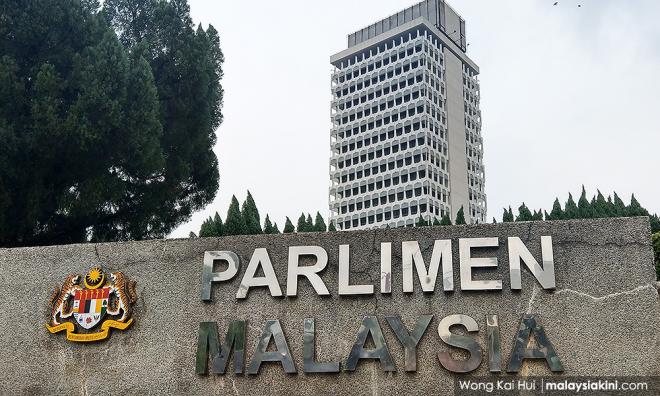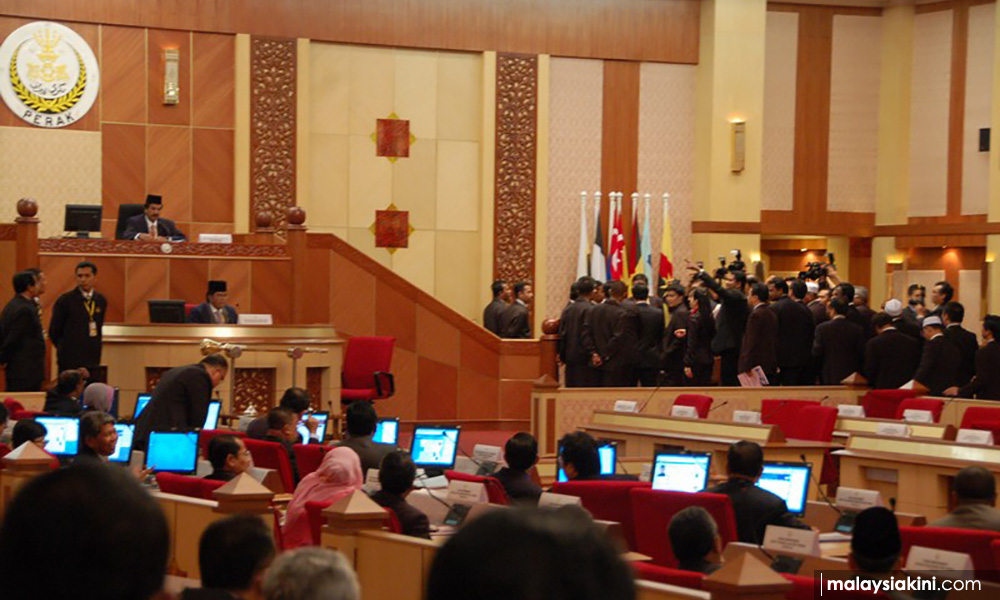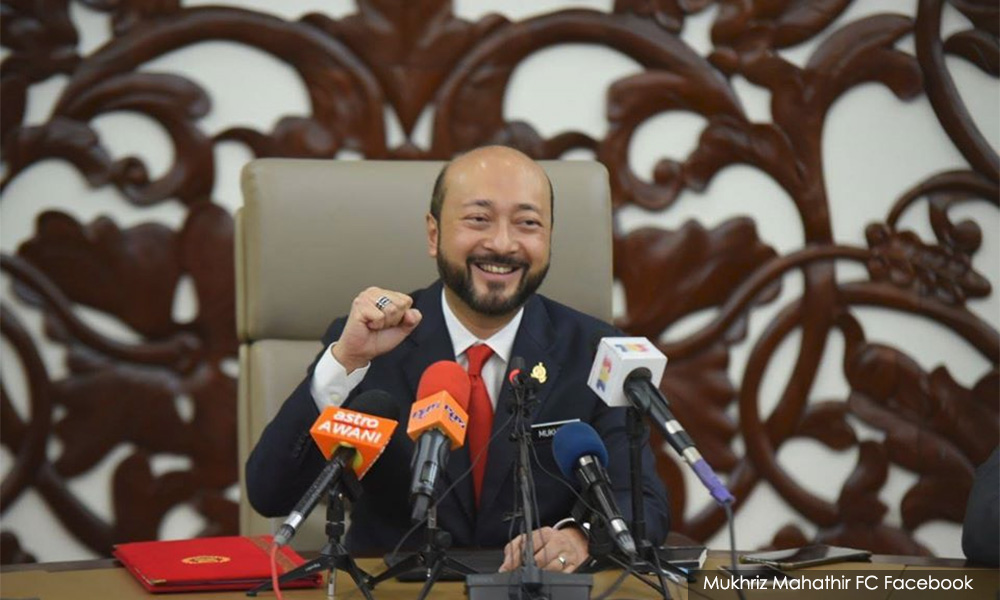
We all agree that the parliamentary session today, May 18, serves no purpose. There will not be a no-confidence motion to test the government’s claim that it has the confidence of the majority; it is nothing but a mockery of transparency and accountability.
But when the Parliament sits for the first time in nearly six months, it will symbolise a shift in the country’s morality. For the first time in history, the sitting government is one that is not chosen by the people. An illegitimate government will be legitimised through the parliamentary process.
Although this is the highest legitimisation process, this is not the only one. State governments of Johor, Malacca, Perak, and Kedah have since switched hands through a reorganisation of interest, rather than an election. Words have started to catch our ears that even a stable state like Selangor is at risk of changing hands because politicians do not respect the people’s will.
Crisis of Perak 2009 has become routine
A little more than 10 years ago, the defections that caused the collapse of the Perak government were considered a constitutional crisis. Two Pakatan Rakyat assemblypersons decided to quit and pledge support to a rival coalition, bringing the Barisan Nasional government back into power. The legitimacy of the new government and the menteri besar was called into question.
The Bar Council said the institutions have “broken down”. The independence of the institutions was challenged, and the morality of the defectors was also cast into doubt.
A decade later, the Perak crisis has become commonplace – a comical routine. Instead of shame and embarrassment, defectors would now hold a press conference to proudly proclaim their support for the rival party, in total defiance of the mandate of the voters. All defectors were virtually guaranteed positions and influence much greater than what they got before.
This horse-trading has no rules, you can pick and choose who you like, as long as you have money and positions to offer.

I am not sure what has changed between 2009 Perak and now, but I will lay down the moral case against party-hopping. My hope is that we reinstate our anger and frustration in hopes of retrieving our shared morality.
The moral case against 'lompat'
Hopping to a rival party is generally wrong. Hopping to a rival party to the point of causing the people’s government to collapse is even more wrong. The reason is because this involves the sacredness of the people’s mandate that ought not to be violated in any circumstance. The only moral way to orchestrate a change in government is through an election, where the people are given the full information to decide who should represent them.
This is especially so when most Malaysians vote according to party/coalition lines – many Malaysians only pay attention to which flag or logo when they mark their cross on the ballot paper. In the 2018 general election, most Malaysians had decided on BN’s ‘dacing’ or Pakatan Harapan’s ‘eye’ or the ‘moon’ of PAS. Only under very few circumstances do people pay attention to the personalities they vote for.
In fact, most candidates in the last election prefer that voters to pay attention to the party/coalition, rather than who they are. This is because candidates for each seat are only introduced to the voters a few weeks before the election, and most candidates do not have a sufficient track record to showcase to the constituency.
If it is clear that the coalitions and the candidates themselves wanted the people to vote according to party/coalition lines, that means once elected, the candidates owe that mandate to the coalition that helped them succeed.

If the voters have chosen for Harapan to govern at the federal level and in Johor, Malacca, Perak, Kedah, Penang and Selangor, that means there should be no change in government, save for an election that is decided by the people.
Reclaim our morality
Doing so otherwise is immoral because it does not respect the mandate of the people.
More so if the change of government is activated through immoral means. If there were any promises of positions, wealth and influence, then this is morally worse.
There is only one exception for party-hopping: When the party you serve has fundamentally changed in character or the party was involved in immoral or illegal acts like corruption, theft, embezzlement or abuse of power. But even then, the moral thing to do is either to resign or go back to the people through an election process.
There is a grave tragedy behind the recent defections that are primarily driven by the lust of power and wealth. Many politicians have become entitled to higher positions that they would rather be deaf to the sounds of the pengkhianat or traitor than to miss out on this moral chaos.
Everything is up for grabs now. Everyone has a price if you offer them high enough. Even when five governments have collapsed in three months, could we still say that our morality is intact?
JAMES CHAI is a legal consultant and researcher working for Invoke, among others. You may reach him at jameschai.mpuk@gmail.com. - Mkini



No comments:
Post a Comment
Note: Only a member of this blog may post a comment.